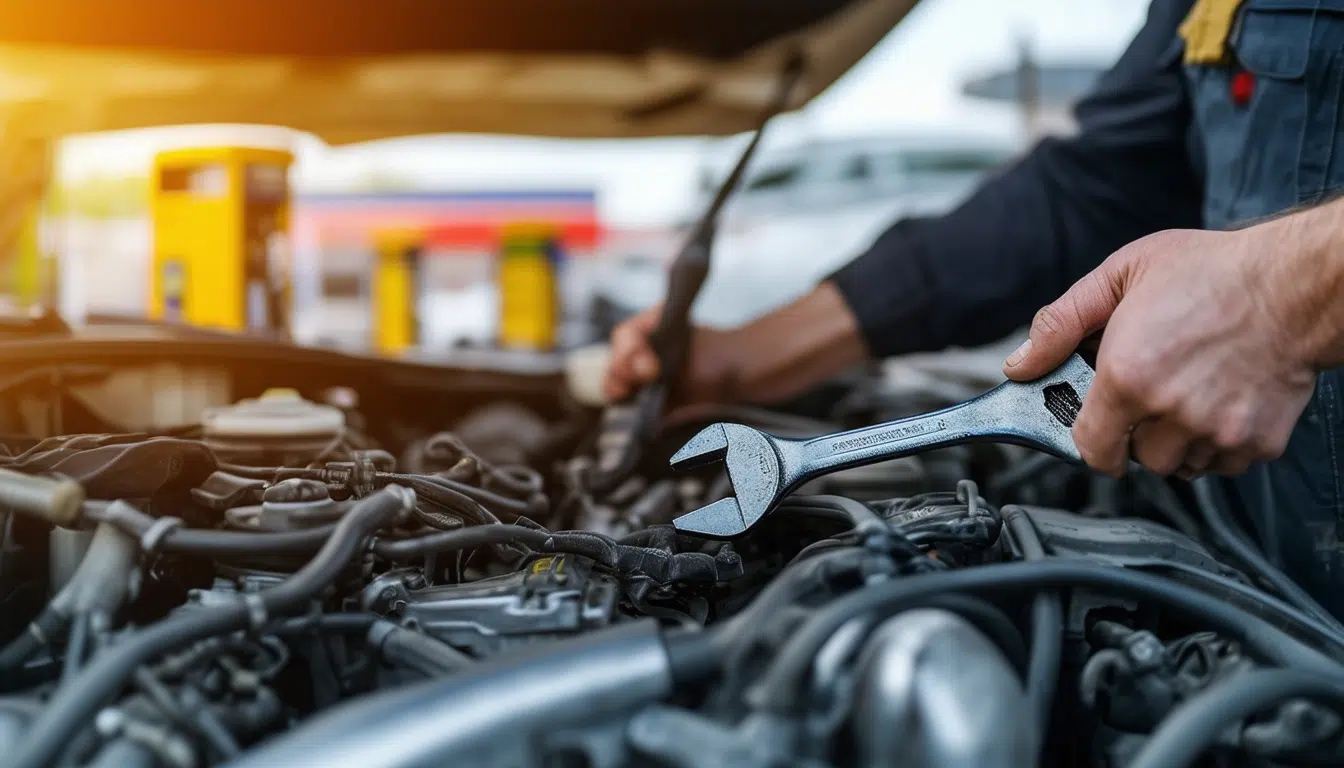The importance of maintaining the engine to save fuel

The importance of maintaining the engine of a vehicle is crucial to ensure its efficiency and prolong its lifespan. The proper care of this fundamental element not only allows for reduced fuel consumption but also contributes to a lower environmental impact. With some simple care and preventive maintenance, problems that lead to unnecessary waste of resources can be avoided, thus promoting a more sustainable and economical driving experience.
The proper maintenance of the engine is essential not only for the vehicle’s performance but also to save fuel and contribute to environmental sustainability. A well-maintained engine operates more efficiently, resulting in reduced fuel use, significant cost savings, and a smaller environmental footprint. In this article, we will explore the key reasons why engine maintenance is crucial for fuel efficiency, as well as some practical tips to ensure your engine operates under optimal conditions.
Regular Engine Maintenance
Performing preventive maintenance regularly is fundamental to the health of the engine. This includes checking and changing the oil, air and fuel filters, and other critical components. When an engine runs smoothly, fuel waste resulting from minor but significant mechanical failures is avoided. A simple oil change, for example, can improve engine performance and reduce fuel consumption.
Economic Advantages
The economic benefits of maintaining the engine are evident. A well-cared-for car has lower fuel consumption, which translates into savings at the pump. Furthermore, an efficiently functioning engine prolongs the vehicle’s lifespan, avoiding costly repairs and the premature need to replace the car. Additionally, it is estimated that proper maintenance can reduce fuel costs by between 10% and 25%, depending on the driving technique employed.
The Relationship Between Maintenance and Fuel Savings
It is crucial to understand how engine maintenance is directly related to fuel savings. A poorly maintained engine can lead to higher consumption, increasing expenses and pollutant emissions. For example, if the fuel injection system is not well calibrated, it may use more gasoline than necessary. Ensuring that all parts of the engine are in perfect condition will allow the vehicle to optimize its performance.
Tips for Effective Maintenance
Implementing certain practices can facilitate engine maintenance. Among them, the importance of turning off the engine in long wait situations, such as when waiting for a passenger to get into the vehicle, is emphasized. While this may seem like minimal daily savings, in the long run, this habit prevents unnecessary fuel consumption.
It is also advisable to monitor tire pressure, as under-inflated tires can increase fuel consumption. Additionally, shifting to overdrive can be beneficial, as it reduces engine revolutions and, consequently, fuel use.
Choosing the Right Fuel
Using the correct type of fuel is another key aspect of engine maintenance. Inadequate fuel can affect engine performance and increase consumption. Therefore, it is essential to know the manufacturer’s specifications and choose the fuel that best suits the vehicle’s needs.
Avoiding Resource Waste
Historically, the importance of a well-maintained engine in resource conservation has been underestimated. By ensuring that every drop of fuel is used effectively, you significantly contribute to environmental protection. It is also important to consider that optimal engine performance means lower pollutant emissions, which is crucial in the fight against climate change.
In summary, engine maintenance is not only vital for the vehicle’s operation but also plays a crucial role in fuel savings and reducing the ecological footprint. Consider implementing the mentioned suggestions and see how your vehicle responds to them.
For more information about fuel savings and innovations in engines, you can visit these interesting links:
- Russian innovation in engines
- Diesel engines as investment
- Vintage engine event
- Ideal engine type
- Xpeng P7 specifications
Proper engine maintenance is essential to ensure efficient driving and minimize fuel consumption. When a vehicle receives the necessary care, its performance is optimized, which in turn reduces refueling expenses. One of the most effective ways to achieve this is through preventive maintenance programs, which help identify and resolve issues before they become critical failures.
Furthermore, in addition to contributing to lower fuel consumption, keeping the engine in good condition significantly impacts the car’s lifespan. A well-maintained engine is not only more efficient but also decreases the likelihood of costly repairs in the future. Each small adjustment, such as regular oil changes or filter checks, can make a considerable difference in how much fuel the vehicle uses.
Another aspect to consider is the choice of appropriate fuel. Using the type of fuel recommended by the vehicle manufacturer ensures that the engine operates optimally. In this regard, it is important to note that inappropriate fuel can not only increase consumption but also cause long-term damage to the engine.
Finally, it is crucial not to underestimate the driving technique. Adopting more efficient driving styles, such as avoiding sudden accelerations and using appropriate gears, also helps reduce fuel consumption. Thus, maintaining the engine and practicing responsible driving become essential actions not only to maximize vehicle performance but also to promote sustainability and resource conservation. This synergy is essential in a world where the need to save fuel becomes increasingly critical.




